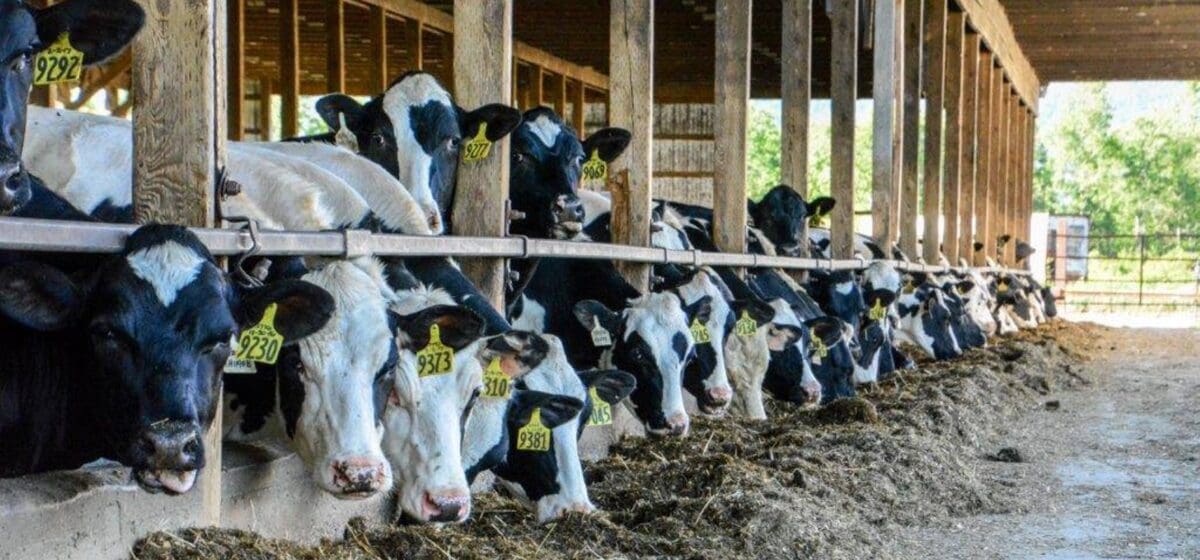The Forbes family puts animal comfort and high feed quality on top of their priority list.
The Forbes farm, now run jointly by Scott and his brother, Allan, Jr., was established in 1902 by their great–grandfather with 60 acres of land and a few milking cows. By 1968, the operation had grown to 300 acres and 60 milking cows, and it entered its third generation when Scott and Allan’s father, Allan ‘Mickey’ Forbes, Sr., purchased it from his father. Almost two decades later, Scott and Allan became partners with their father.
Today, the farm consists of a total 2,700 acres of land (2,000 acres are in Forbes ownership and 700 acres are under rental agreement) and a little over 1,300 milking cows, a large operation by New Hampshire dairy standards. The fifth generation is already well-established: Scott and Allan’s sons, Issac and Mitchell, are involved in the dairy operation, but don’t count out Allan, Sr., who at 78 still tools around the place in his pick-up, says Scott, checking in on things and offering advice.
The Forbes family puts animal comfort and high feed quality on top of their priority list, and Scott explains it pays off in milk quality. “You’ve got to keep clean cows,” he says, and the team works to ensure that conditions are optimum for quality milk. The payoff has been quality awards from their cooperative and a more productive herd.
Recent improvements on the large farm include new calf and heifer barns – the former features a heating system to keep calves and workers warm in the cold New Hampshire winters — and enlarged calving pens. Two additions to the barns and new feed storage facilities have increased accommodations to 188 stalls for the heifers and 240 stalls for the milking cows as well as two bunk silos. In order to cut the cost, lots of the concrete and the carpentry work have been done by the farm employees.
“Every day is a challenge, but it goes beyond that,” says Scott, whose day starts at 3:30 a.m. and continues into early evening. He and his brother, and now their children, as fifth generation dairy farmers, wouldn’t do anything else, he says — and that is good news indeed.
Photo Courtesy NH Farm Bureau Federation

